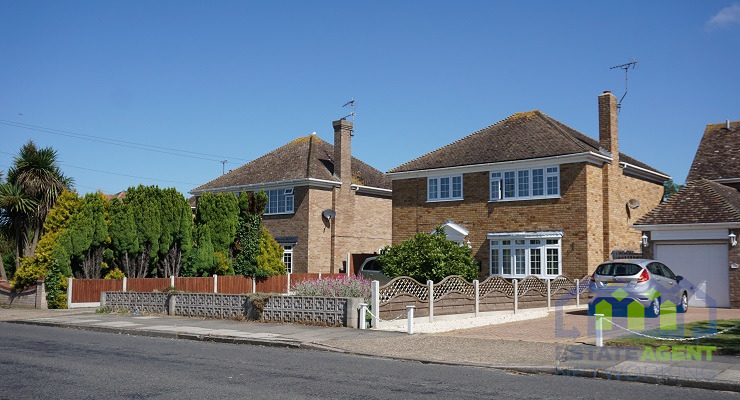Shared Ownership vs. Traditional Mortgages: What’s the Difference?
Buying a property in Guildford is a significant decision, and choosing the right method of ownership is crucial. Two popular options available to buyers are shared ownership and traditional mortgages. Understanding their differences can help you decide which suits your financial situation and property aspirations.
What Is Shared Ownership?
Shared ownership is a government-backed scheme designed to help individuals step onto the property ladder. It allows you to buy a share of a property (usually between 25% and 75%) while paying rent on the remaining share, which is owned by a housing association.
Benefits of Shared Ownership:
- Lower Deposit Requirements: You only need a deposit for the portion of the property you’re purchasing.
- Affordable Entry: Aimed at making homeownership accessible for those unable to afford a traditional mortgage.
- Option to ‘Staircase’: Over time, you can purchase additional shares in the property until you own it outright.
Drawbacks of Shared Ownership:
- Limited Ownership: You may not own the entire property outright initially.
- Rent Costs: Alongside your mortgage payments, you’ll need to pay rent on the unsold share.
- Resale Restrictions: Selling a shared ownership property can involve more rules and processes compared to traditional ownership.
If you’re exploring affordable properties in Guildford, local estate agents in Guildford, such as Martin & Co, can guide you through shared ownership opportunities.
What Is a Traditional Mortgage?
A traditional mortgage involves borrowing money from a bank or lender to purchase the entire property. You pay back the loan in monthly instalments over an agreed term, with interest.
Benefits of a Traditional Mortgage:
- Full Ownership: You own 100% of the property from the outset (subject to mortgage repayment).
- Investment Potential: Property prices in Guildford tend to rise over time, making traditional mortgages attractive for investors.
- No Rent: Unlike shared ownership, you don’t pay rent alongside your mortgage.
Drawbacks of a Traditional Mortgage:
- Higher Deposit: A larger upfront payment is typically required compared to shared ownership.
- Strict Eligibility: Your credit score, income, and financial history significantly influence your ability to secure a mortgage.
- Commitment: A traditional mortgage is a long-term financial commitment, often spanning decades.
Key Differences Between Shared Ownership and Traditional Mortgages
| Aspect | Shared Ownership | Traditional Mortgage |
| Ownership | Part ownership (with the option to increase shares) | Full ownership from the outset |
| Deposit | Based on the purchased share | Based on the full property value |
| Monthly Payments | Mortgage + rent | Mortgage only |
| Eligibility | Often aimed at first-time buyers with limited income | Requires meeting strict lender criteria |
| Flexibility | Allows gradual ownership increases (staircasing) | Complete flexibility once the mortgage is repaid |
| Resale Process | Governed by housing association rules | Easier and less regulated |
Which Option Is Right for You?
Choosing between shared ownership and a traditional mortgage depends on several factors:
- Affordability: If you’re looking for affordable properties in Guildford, shared ownership might provide a more accessible route to property ownership.
- Long-Term Goals: A traditional mortgage is better suited for those seeking full property ownership and long-term investment potential.
- Flexibility: Shared ownership offers the ability to gradually increase your stake, ideal for those who cannot afford outright ownership initially.
If you’re unsure, seeking expert property advice in Guildford from Martin & Co. estate agents can help you navigate the Guildford property market and make the right choice.
Properties in Guildford: What Are Your Options?
The Guildford property market offers a range of homes for buyers, whether you’re interested in shared ownership or traditional mortgages. From houses for sale in Guildford to flats to rent in Guildford, you can find options to match your needs.
Martin & Co Guildford specialises in:
- Helping buyers understand shared ownership and traditional mortgages.
- Providing accurate property valuations in Guildford.
- Guiding first-time buyers through the process of buying a house in Guildford.
Final Thoughts
Whether you opt for shared ownership or a traditional mortgage, owning a home in Guildford is a rewarding experience. Both options come with unique advantages and challenges, so evaluating your financial position and future goals is essential.
At Martin & Co. estate agents in Guildford, we’re here to assist you every step of the way. From offering expert property advice in Guildford to showcasing newly listed properties, our team is dedicated to helping you find your dream home. Contact us today to explore the best options for your home-buying journey.









